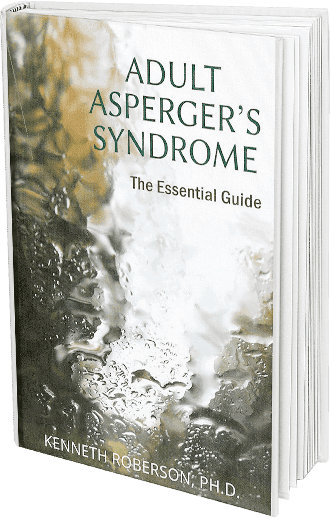
The short answer is yes. People with Autism Spectrum Disorder (ASD) experience love and affection just like anyone else. Intimacy is entirely possible with the right kind of communication and a strong desire to make the relationship work.
Not that it’s necessarily easy, though. Here are several reasons why it can be challenging for someone with ASD to develop and maintain a close, emotionally intimate relationship.
Mind Blindness
It’s characteristic of those with ASD to have difficulty predicting the beliefs and intentions of others. “Reading” what another person is thinking is limited, sometimes even absent, so that forming a bond through knowledge and experience of the other person is hard to accomplish.
It is also typical for people with ASD to have trouble understanding and applying ordinary rules of social contact, guidelines based on gestures, eye contact, vocal tone, and other modes of non-verbal behavior. For example, it’s hard for them to recognize what someone intends when they use a phrase with several meanings even though the context in which the term has a specific connotation.
In addition, misinterpreting or ignoring non-verbal communication leads to emotional misunderstanding, a frequent condition in neurodiverse relationships.
Emotional Blindness
People with ASD have a great deal of difficulty identifying and interpreting emotional signals in themselves and others. This is because they don’t “get” how other people feel, and accordingly, they have trouble empathically responding to others.
Since this emotional blindness concerns awareness of their feelings, they can have difficulty identifying and regulating their own emotions, especially powerful emotions like sadness, anger, and joy. Feelings are expressed in sudden outbursts that seem to have no relation to what’s just happened. Lacking emotional stability is a frequent complaint of neurotypical partners and is one of the main factors preventing intimacy.
Social Blindness
Difficulty in social situations goes hand in hand with trouble empathizing and controlling emotions. As a result, the conversations of people with ASD are often one-sided, long-winded, detailed, and lecture-like.
They can come across as self-centered, insensitive, rigid, and needing to have the last word.
They are not deft in social settings, are unlikely to apologize or acknowledge responsibility for mistakes, are overly sensitive to criticism, and are often suspicious of others. In addition, because they hold onto lingering resentments over perceived slights, they can be accused of being paranoid.
All of this complicates intimate relationships with someone who has Autism Spectrum Disorder.
So, How Is Intimacy Possible?
It’s possible with the right person. A partner who will learn about ASD and make the necessary adjustments to what’s lacking in the relationship can ensure a fulfilling level of intimacy.
Intimacy is possible when both parties have a strong desire to make the relationship succeed and are committed to working hard at communicating their different perspectives. Communicating non-judgmentally, which is essential to understanding and appreciating the differences between the pair, is critical in creating intimacy. As an ASD psychologist, I often see this when working with couples to change ineffective communication patterns.
Being committed to compromise and sharing is vitally important. However, since these do not come naturally to the person with ASD, ensuring that accommodations and equal division of labor are present in the relationship is critical to success.
For some people with ASD, social skills training can help them deal with partners, spouses, and children.
Therapy, especially with a mental health professional experienced with ASD, can help both parties understand what’s happening in their relationship, what’s working and not working, and what can be done to improve it.
Overall, the key to achieving intimacy for people with Autism Spectrum Disorder is a willingness to accept the difficulties of this condition and commit to putting in the effort it takes to change those difficulties into positive agents for closeness.
Dr. Kenneth Roberson is an ASD psychologist in San Francisco.




